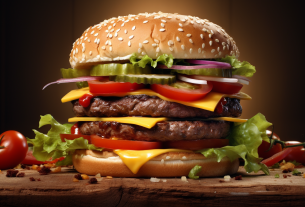Europe is at a critical juncture in its energy landscape. The continent’s reliance on Russian gas has been a significant factor in its energy supply for years. However, recent geopolitical events, particularly Russia’s invasion of Ukraine, have accelerated the need for Europe to reassess its energy sources and strategies.
The Russian Gas Dependency
Historically, Russia has been a major supplier of fossil fuels to Europe. In 2021, it was the largest exporter of oil and natural gas to the continent. This dependency has been a double-edged sword for Europe. On one hand, it has ensured a steady supply of energy. On the other hand, it has left Europe vulnerable to geopolitical tensions and supply disruptions.
The Turning Point
The invasion of Ukraine by Russia marked a turning point in Europe’s energy narrative. The conflict not only strained diplomatic relations but also disrupted gas imports from Russia to the EU. This situation presented a challenge for Europe but also an opportunity to accelerate its energy transformation.
The Energy Transformation
In response to the crisis, Europe has been making concerted efforts to reduce its reliance on Russian gas. The European Union launched REPowerEU, a campaign aimed at boosting the use of renewable energy, reducing overall energy consumption, and diversifying energy sources.
In 2022, for the first time, wind and solar power surpassed gas as a source of electricity in the EU. These renewable sources provided a record-breaking 22% of EU countries’ electrical supply. This shift towards renewable energy sources is a significant step towards energy sovereignty for Europe.
The Road Ahead
The road to energy independence is not without its challenges. Replacing the 150 billion cubic meters of gas that Russia used to export annually to Europe requires strategic planning and investment.
However, the EU can leverage its purchasing power as the world’s second-biggest combined economy to negotiate with gas suppliers as a single buyer. This approach could secure gas at a reasonable price while providing suppliers with long-term contracts to better manage their investment plans.
Moreover, the EU can continue to invest in renewable energy, energy efficiency improvements, and hydrogen projects. By coordinating efforts to obtain energy resources from outside Russia and rapidly implementing planned infrastructure projects, EU states can continue with their strategy of energy decoupling from Russia.
FAQ
What role did Russia play in Europe’s energy supply?
Russia was a major supplier of fossil fuels to Europe, being the largest exporter of oil and natural gas to the continent in 2021.
What is REPowerEU?
REPowerEU is a campaign launched by the European Union aimed at boosting the use of renewable energy, reducing overall energy consumption, and diversifying energy sources.
What is energy sovereignty?
Energy sovereignty refers to a nation’s ability to secure its energy needs independently, without relying on external sources.
What is energy decoupling?
Energy decoupling refers to the process of reducing the dependence on a particular energy source. In this context, it refers to Europe’s efforts to reduce its reliance on Russian gas.
Glossary
Fossil Fuels: Natural fuels such as coal or gas, formed in the geological past from the remains of living organisms.
Renewable Energy: Energy from a source that is not depleted when used, such as wind or solar power.
Energy Efficiency: The goal to reduce the amount of energy required to provide products and services.
Hydrogen Projects: Initiatives related to the use of hydrogen as a source of clean energy.
Geopolitical Tensions: Conflicts or disputes between countries that are related to political, economic, or territorial issues.



